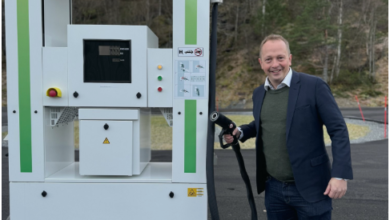California Fuel Cell Partnership becomes HFCP
California Fuel Cell Partnership becomes a national organization- the Hydrogen Fuel Cell Partnership.

The California Fuel Cell Partnership has changed its name to the Hydrogen Fuel Cell Partnership (HFCP), nearly 23 years since the government-industry collaboration was first launched.
The evolution into a national organization comes at the same time as the Partnership’s initiation of a new national hydrogen mobility strategy. Seeking to accelerate the expansion of national hydrogen production and distribution to support heavy-duty trucking and light-duty rollout across the United States, the strategy will enable the necessary links between ports, key commercial and urban centres, and hydrogen hubs across the United States and ideally, North America.
The strategy will leverage the organization’s earlier roadmaps and visions for cars and heavy-duty trucks and national laboratory and state transportation models. In addition, it draws upon California’s policy and investment experience that launched the first retail zero-emission vehicle market in the world and identified achievable steps to a self-sustaining fueling network.
The Partnership, established as a national nonprofit, will further enable government, private industry, universities and others to take lessons learned from successes achieved and challenges met in California and across the globe to other states and communities across the US,
Joseph Cappello, chair of the Hydrogen Fuel Cell Partnership, said, “The change in name further enables our members to work across the country to share information, best practices and lessons learned by all of our members.”
Tyson Eckerle, Vice-chair of HFCP, said, “Hydrogen mobility will complement battery electric mobility and ensure that we build a zero-emission, resilient transportation future that includes everyone.”
Bill Elrick, executive director of HFCP said, “A decade later, with increasing global recognition of the importance of hydrogen in achieving our zero-emission vehicle and renewable energy objectives, we are more certain that this is a necessary and achievable objective.”
Jerome Gregeois, past chair of HFCP, said, “We intend to take our culture of collaboration between industry and government to enable regions across the U.S. to plan and cooperate with other regions.”
Sandy Berg, former Partnership chai, said, “Our evolution into a national nonprofit reflects strong agreement between industry and government that the dialogue we have created to achieve common goals can benefit other states and regions.”
